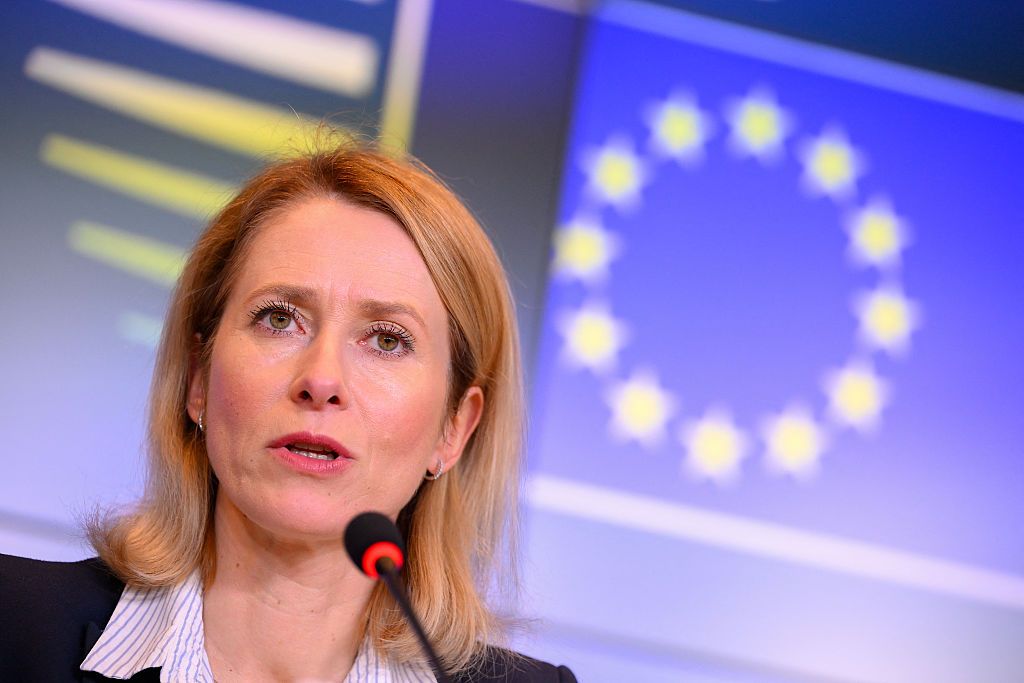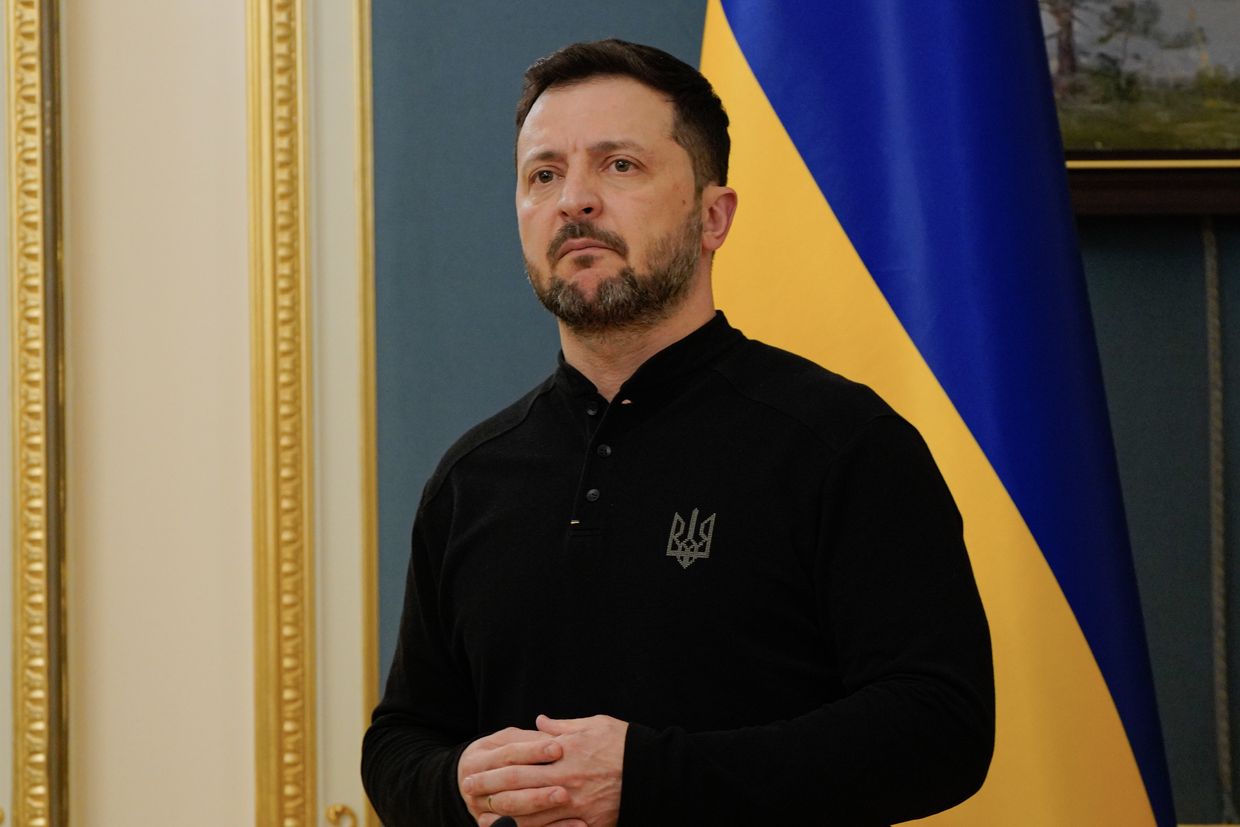"We have a plan B and a plan C. But our focus is plan A, the essence of which is to get everyone's support" for Ukraine's accession, EU foreign policy chief Kaja Kallas said.
"(T)he presence at the Victory Parade of a country that bombs cities, hospitals, and daycares, and which has caused the deaths and injuries of over a million people over three years, is a shame," Polish Prime Minister Donald Tusk said.
"According to the participants of the performances, their goal is to remind the civilized world of the barbaric actions of Moscow, which for many years and decades has systematically violated international law," a source in Ukraine’s military intelligence agency (HUR) told the Kyiv Independent.
"I have great hope that an agreement for a ceasefire in Ukraine will be reached this weekend," German Chancellor Friedrich Merz said on May 9, shortly before traveling to Kyiv alongside the leaders of France, Poland, and the U.K.
U.K. Prime Minister Keir Starmer, French President Emmanuel Macron, German Chancellor Friedrich Merz, and Polish Prime Minister Donald Tusk will arrive in Kyiv early on May 10.
The United States embassy in Kyiv on May 9 issued a warning that Russia could launch "a potentially significant" attack in the coming days, despite Putin's self-declared Victory Day "truce."
The sanctioned oil tankers have transported over $24 billion in cargo since 2024, according to Downing Street. The U.K. has now sanctioned more shadow fleet vessels than any other country.
The sanctions list includes 58 individuals and 74 companies, with 67 Russian enterprises related to military technology.
Washington and its partners are considering additional sanctions if the parties do not observe a ceasefire, with political and technical negotiations between Europe and the U.S. intensifying since last week, Reuters' source said.
Despite the Kremlin's announcement of a May 8–11 truce, heavy fighting continued in multiple regions throughout the front line.
Putin has done in Russia everything that Luiz Inacio Lula da Silva had been against in Brazil.
EU will not recognize Crimea as part of Russia, Kallas says

The European Union will not recognize Russia's annexation of Crimea under any circumstances, EU’s top diplomat Kaja Kallas said on April 30 in an interview with the Financial Times.
Her remarks come amid growing concern that the Trump administration is pressuring Ukraine to accept a peace deal requiring concessions and paving the way for renewed ties with Russia.
Previously, Axios reported that the peace plan suggested by U.S. President Donald Trump included de jure recognition of Russia's control over Crimea, along with de facto recognition of its occupation of other Ukrainian territories. It also provided for lifting sanctions imposed on Russia since 2014.
"On the European side, we have said this over and over again… Crimea is Ukraine," Kallas said. "But we can't speak for America, of course, and what they will do."
Kallas said the EU is also drawing up a "plan B" to maintain economic sanctions on Russia in case the Trump administration pulls out of Ukraine peace negotiations and moves to restore ties with Moscow. Plan A, according to Kallas, may be threatened by Hungary, which can block the rollover of EU economic sanctions in July.
The EU's top diplomat said the main goal is still to keep all EU countries united. She admitted some governments are quietly considering following the U.S. if it pulls back from supporting Ukraine.
"But it's also a false hope, because if you look at Russia that is investing more than 9 per cent of its GDP on the military, they will want to use it again," she noted.
Kallas said the EU could help Ukraine financially if the U.S. pulls back, but admitted it would be much harder to replace American military support.
She added that Europe is still trying to work with the U.S. and convince Washington that it's also in America's interest to make sure Russia doesn't win the war.
Trump, who promised a quick resolution to the war early in his presidency, has yet to broker a deal as both Kyiv and Moscow resist key elements of Washington's proposals. It has been almost two months since Ukraine accepted a U.S.-proposed 30-day ceasefire first introduced in March by American president. Moscow rejected the plan, demanding a complete halt to Western military aid to Ukraine.
Despite claiming to support de-escalation, Russia has continued offensive operations along the front lines. Meanwhile, a separate partial ceasefire covering Ukraine's energy infrastructure, brokered during a March 18 call between Russia's President Vladimir Putin and Trump, was also repeatedly violated.
Speaking to journalists during a visit to India on April 23, U.S. Vice President JD Vance said that unless Russia and Ukraine agree to the peace proposals, the U.S. will walk away from the talks.

Most Popular

After 3 years of full-scale war in Ukraine, Europe announces plan to ban all Russian gas imports

Ukraine, Europe's ceasefire proposal includes US security guarantees, no recognition of Crimea, Reuters reports

Journalist Roshchyna's body missing organs after Russian captivity, investigation says

After Russia's deadly attack on Kyiv, Vance reposts denunciation of Zelensky

Ukrainian sea drone downs Russian fighter jet in 'world-first' strike, intelligence says
Editors' Picks

How medics of Ukraine’s 3rd Assault Brigade deal with horrors of drone warfare

As Russia trains abducted children for war, Ukraine fights uphill battle to bring them home

'I just hate the Russians' — Kyiv district recovers from drone strike as ceasefire remains elusive



